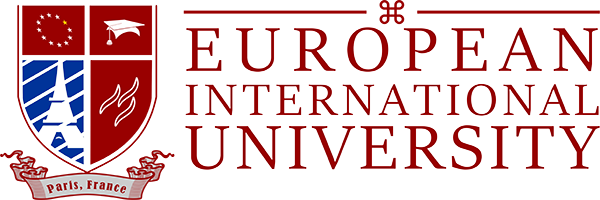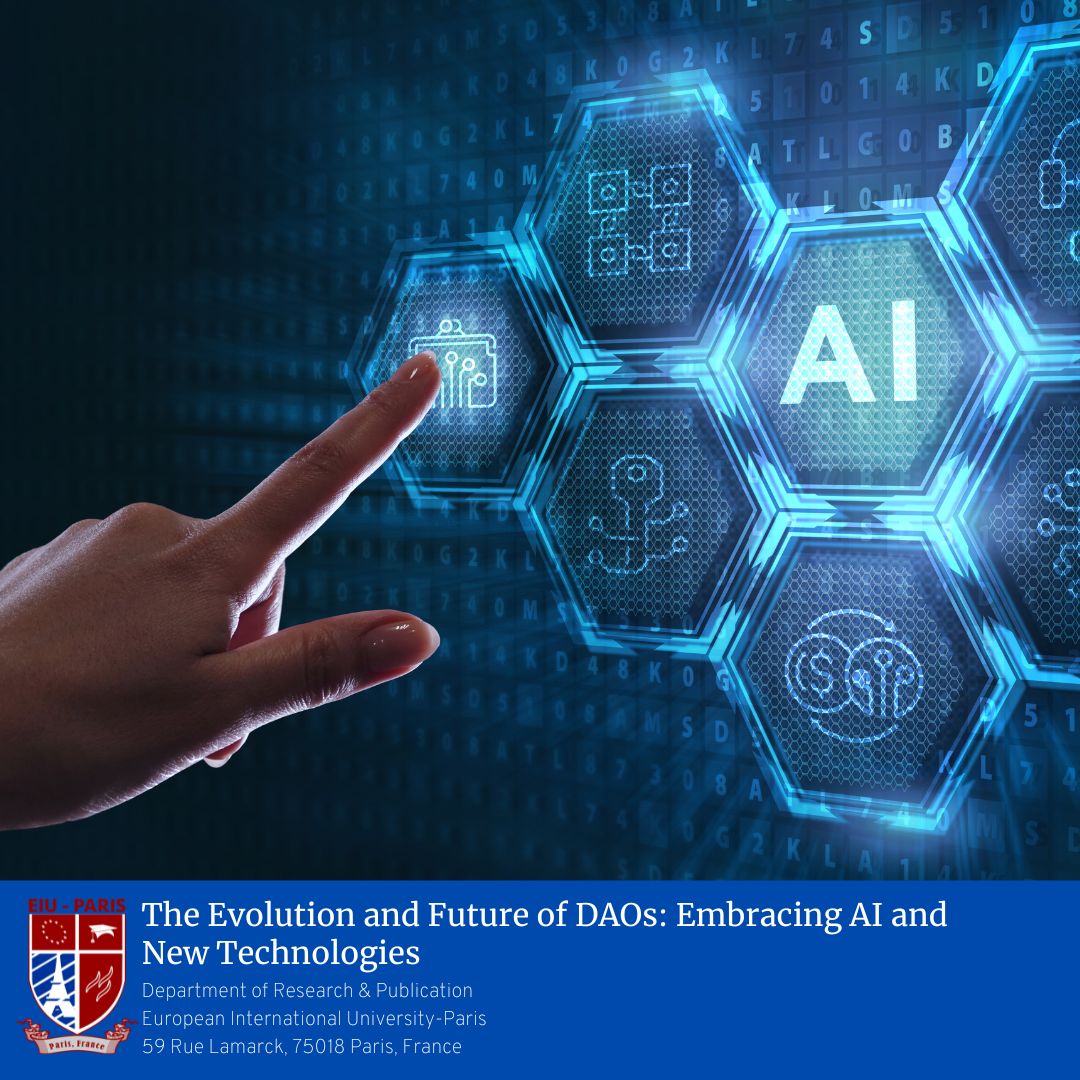Study conducted by JIANZHENG SHI- EIU-Paris 2023
Introduction
Decentralized Autonomous Organizations (DAOs) have emerged as a revolutionary concept in the world of blockchain and decentralized finance. By eliminating the need for traditional hierarchical structures, DAOs promise a future where organizations are run by code and collective decision-making. As we venture further into this decentralized future, the integration of Artificial Intelligence (AI) and new technologies will play a pivotal role in shaping the trajectory of DAOs.
Decentralized Autonomous Organizations (DAOs) represent a paradigm shift in the realm of organizational structures, leveraging blockchain technology to operate autonomously through smart contracts and collective decision-making. This article delves into the evolution and potential future of DAOs, emphasizing the integration of Artificial Intelligence (AI) and emerging technologies. Drawing from seminal literature, the article underscores the transformative potential of DAOs in reshaping organizational governance, contract formulation, and decentralized operations. The integration of AI promises enhanced efficiency, predictive insights, and a personalized member experience. As DAOs evolve, they are poised to redefine the fabric of organizational design and operation in the digital age.
Read the complete research on EIU-Journals & Publications
Evolution of DAOs
Decentralized Autonomous Organizations (DAOs) are a new type of organization that is run by code and collective decision-making. DAOs are powered by blockchain technology, which allows them to operate without the need for a central authority.
The first DAOs emerged in 2016, and they have since grown in popularity and sophistication. Some of the most well-known DAOs include:
- The DAO: The DAO was a venture capital fund that was hacked in 2016, resulting in the loss of millions of dollars in Ethereum. Despite this setback, The DAO is considered to be one of the first and most influential DAOs.
- Uniswap: Uniswap is a decentralized exchange that allows users to trade cryptocurrencies without the need for an intermediary. Uniswap is governed by a DAO, which allows its users to have a say in how the exchange is run.
- MolochDAO: MolochDAO is a funding DAO that invests in public goods projects. MolochDAO is known for its unique governance model, which is designed to discourage short-term thinking and focus on long-term impact.
Future of DAOs
DAOs are still a relatively new technology, but they have the potential to revolutionize the way we organize and collaborate. DAOs can be used to create new types of organizations, such as decentralized venture capital funds, decentralized social networks, and decentralized autonomous companies.
One of the key trends in the evolution of DAOs is the integration of Artificial Intelligence (AI). AI can be used to improve the efficiency, transparency, and security of DAOs. For example, AI can be used to:
- Automate tasks such as proposal evaluation and voting
- Detect and prevent fraud
- Make predictions about future trends
Another trend in the evolution of DAOs is the development of new tools and platforms that make it easier for people to create and participate in DAOs. These tools and platforms are making it possible for people from all over the world to come together and collaborate on projects without the need for a central authority.

Embracing AI and New Technologies
AI and new technologies have the potential to transform the future of DAOs. Here are a few examples:
- AI-powered governance: AI can be used to improve the efficiency and transparency of DAO governance. For example, AI can be used to automatically evaluate proposals and identify potential risks.
- AI-powered decision-making: AI can be used to help DAOs make better decisions. For example, AI can be used to analyze large amounts of data and make predictions about future trends.
- New DAO tools and platforms: New tools and platforms are being developed that make it easier for people to create and participate in DAOs. These tools and platforms are making it possible for people from all over the world to come together and collaborate on projects without the need for a central authority.
Overall, the future of DAOs is bright. As AI and new technologies are integrated into DAOs, we can expect to see DAOs become more efficient, transparent, and secure. DAOs have the potential to revolutionize the way we organize and collaborate, and they could play a major role in the future of the internet.
Here are some specific examples of how DAOs are already using AI and new technologies:
- GitcoinDAO: GitcoinDAO is a funding DAO that supports open source software development. GitcoinDAO uses AI to evaluate grant proposals and identify projects with the most potential.
- Aragon: Aragon is a platform that makes it easy to create and manage DAOs. Aragon provides a variety of features that can be used to automate tasks, coordinate decision-making, and distribute funds.
- DAOstack: DAOstack is another platform that makes it easy to create and manage DAOs. DAOstack provides a variety of features that can be used to create decentralized governance systems, manage reputation, and distribute funds.
These are just a few examples of how DAOs are using AI and new technologies. As DAOs continue to evolve, we can expect to see even more innovative and creative uses of these technologies.
International journals and research papers play an essential role in the scientific community and society as a whole. They help to disseminate knowledge, promote collaboration, advance careers, and address global challenges.
Submitted by Dr J Anand on 12 Oct 2023

